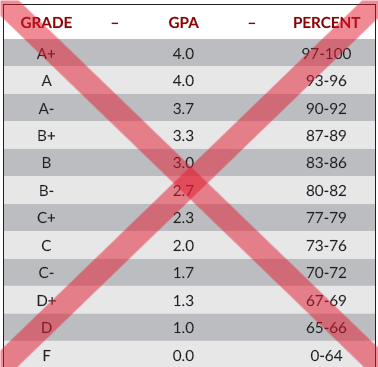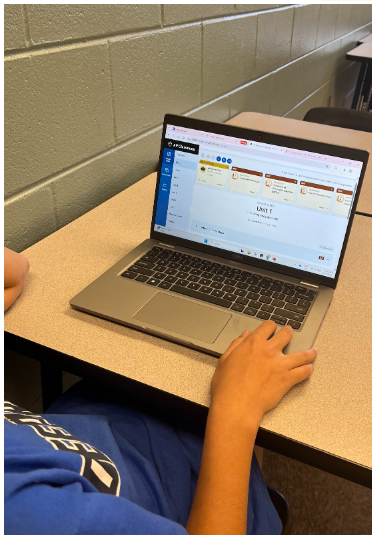
The common stress that school can bring to students is taking a turn with chemistry teacher Amy Earle’s new grading system. This school year, Earle changed her PowerSchool from holding a variety of “categories” (ex: homework, classwork, participation, quizzes, tests/projects, etc) grades to only holding test and quiz grades. This strategy is meant to shift students from focusing on getting a certain grade to focusing on learning.
“Instead of having individual assignment grades factor into students’ marking period grades, grades are based on a series of assessments only. The students still have homework, do labs, and take small assessments, but they get feedback only instead of a number or letter grade on those assignments,” Earle said.
Students complete the work assigned to them and receive specific feedback. Completing the assignments and earning this feedback helps the students adjust what they need to master for the upcoming test or quiz.
“There are 6-8 ‘quizzes,’ [but] I’ve called them ‘goal assessments’ that make up each student’s grade. The homework, labs, etc. that we do in and outside of class are done to help students master the content, rather than for the purpose of getting a grade. If a student doesn’t do an assignment, there is no grade penalty, however he or she may not be as prepared for the goal assessment as they could be,” Earle said.
The different type of grading structure was challenging for some students to grasp initially.
“It was definitely a lot to get used to, but meeting with her during office hours made it much easier and more manageable,” sophomore chemistry student Sofia Thews said.
Earle believes that the change in her grading system has improved students’ outlook on a notoriously difficult subject and student mental health.
“I’d like to think it has made chemistry a little easier to handle than in years past. It definitely helps not having firm deadlines and flexibility on whether or not an assignment ‘has to be done’ or not if a student has a lot going on in a particular week. A lot of students have said they like this system and that it has lowered their stress level,” Earle said. “However, there are definitely some who don’t like it at all and find it even more stressful than traditional grading systems.”
Students’ grades have improved because of one particular portion of the grading system: if a student receives a grade that they are not content with, they can retake the unit’s goal assessment to receive a more satisfying grade.
“With the use of the retakes, my grades have improved tremendously because if I feel that I do not understand the material and I do poorly, I am allowed a retake until I have ’mastered’ the unit,” Thews said.
While the change in grading style has received mixed reviews from students, Earle is finding success in her own goal of shifting the student mentality from grade-focused to learning-focused.






